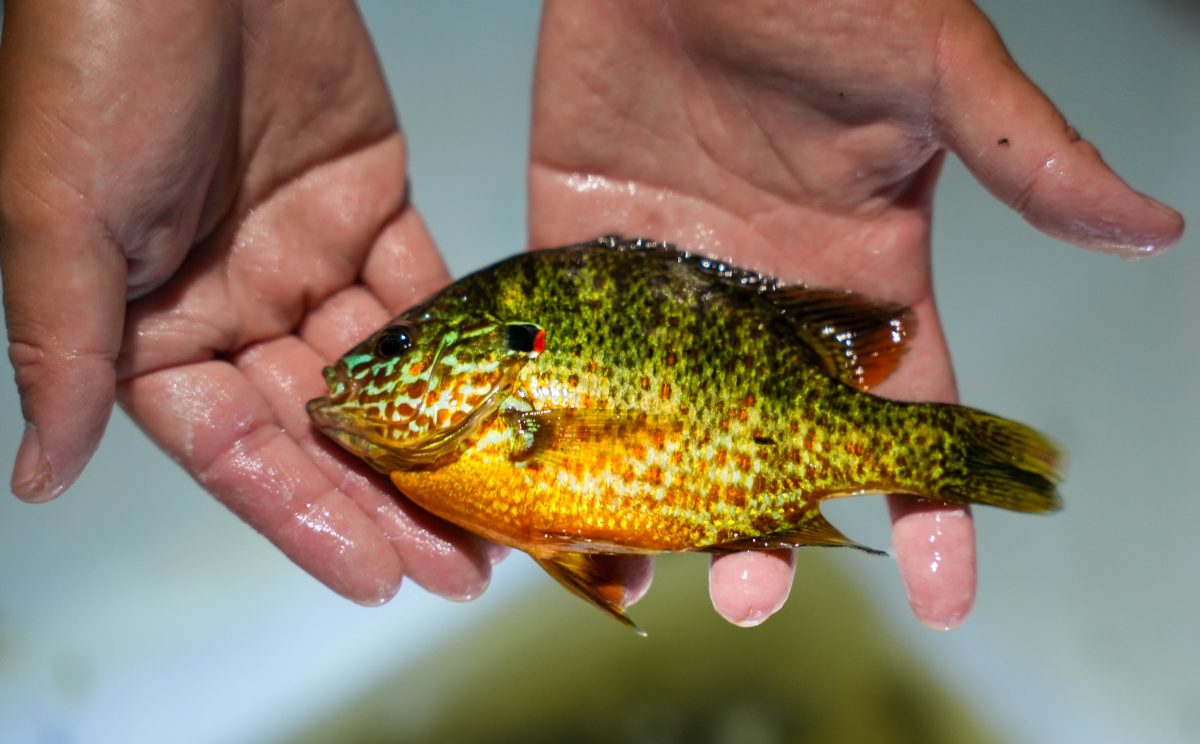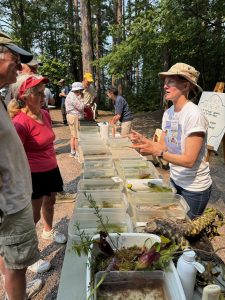
Back in April, 109 donors (and some generous matching grants) helped us raise $32,240 dollars during the UW-Madison’s annual “Day of the Badger” fundraising campaign. Every dollar went to our Student Support Fund, giving a group of truly amazing undergraduates summer fellowships. We wanted to share what your support meant to our students. First up is summer science communication intern, Steven Awve. Stay tuned for recaps from more students!
_______________

My name is Steven Awve and I am from Wauwatosa, Wisconsin. I am a rising junior at UW-Madison studying Wildlife Ecology and Life Science Communication.
This summer, I worked as the Trout Lake Station science communication intern, a role designed to bridge the gap between the research happening at the station and the surrounding community. There’s a lot of fascinating work going on in the Northwoods, but it isn’t always easy to communicate why it matters in a way that’s clear and relatable. My job was to understand the research, figure out why it’s relevant to people’s lives, and then share it in accessible ways. I did this through photos, video, and writing for our social media channels, as well as by organizing in‑person events—like our open house—that connected researchers directly with community members.

Science communication is challenging because there’s no single approach that works for every audience. It can feel overwhelming at times—you’re surrounded by researchers who are experts in their fields, deeply passionate about their work, and it’s easy to see why their research matters when you’re working alongside them.
But translating that excitement into something that resonates with a broader community takes real effort. Every place has its own character, and it takes time to understand what people value and how science connects to their daily lives.
That’s also what made this internship so rewarding. I spent a lot of time within the Northwoods community, getting to know what makes it unique. I wasn’t just working behind a desk—I was out experiencing the lakes, forests, and small towns that define northern Wisconsin. And I got to see firsthand how the research at Trout Lake Station ties directly into preserving the things that make the Northwoods so special.
Trout Lake Station has a very tight-knit community of undergraduate students, graduate students, researchers, community members, and staff. All of those people will undoubtedly be good connections–as well as friends–down the road.

Additionally, this position allowed for a lot of creative freedom and independent work. I had the freedom to develop skills that I thought would be valuable to me in my career, and I now have a portfolio of projects to show for to display those skills to future employers.
Our open house event really stood out to me because it showed how learning never stops. I watched kids, parents, and grandparents all discovering something new side by side, proving that curiosity isn’t limited to any age.
It was a reminder that science isn’t just for classrooms or research labs—it’s something everyone can engage with throughout their lives. And to know that I played a role in making that happen is a neat thing.
As someone passionate about ecology, conservation, and sharing my love for the natural world, it means so much to know there are people who value those things too—and are willing to support opportunities like this.
Support for the scientific community, especially in ecology and conservation, is more important than ever. Seeing people step up to make this fellowship possible gives me real hope for the future. So–thank you!
